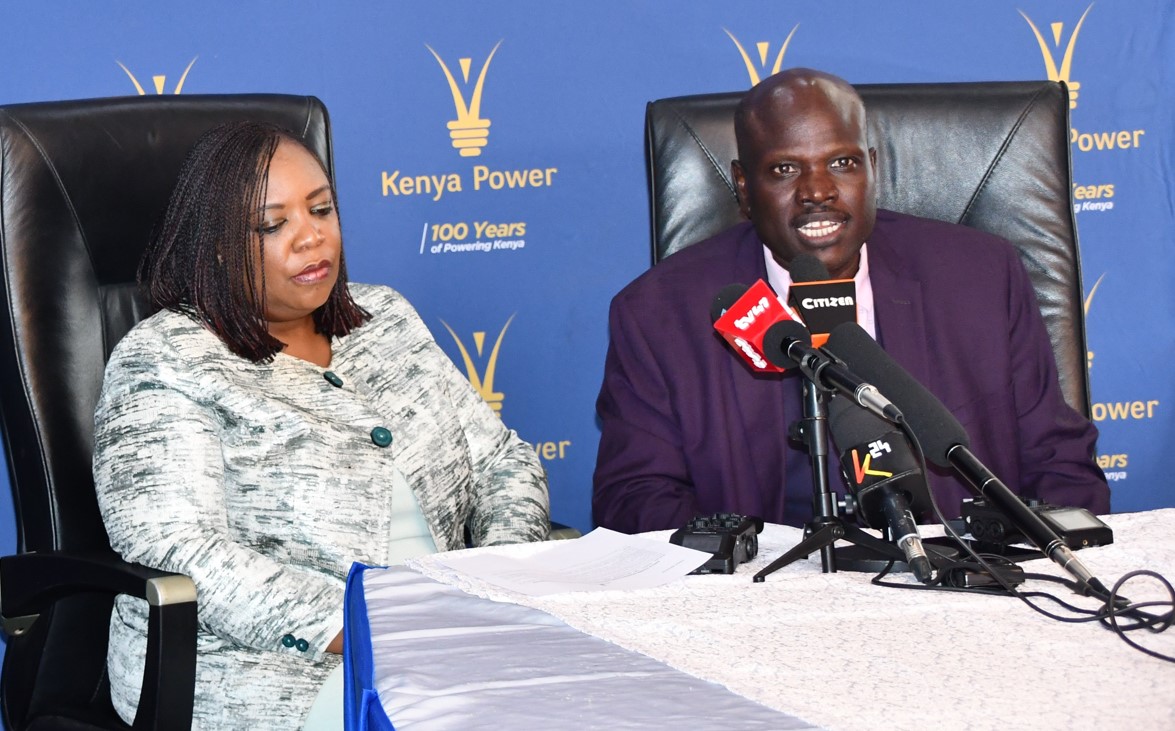Kenya Power gets green light to charge some of its consumers in foreign currencies

The decision is a win for the utility company which has recently faced challenges due to increased forex losses.
Kenya Power has secured government approval to bill some of its customers in US Dollars, Euros, and Sterling Pounds in a strategic move aimed at countering the adverse effects of foreign exchange losses.
The move pays the way for big companies such as exporters, who are willing, to pay in dollars if they don't want to convert them into shillings for them to pay for their bills.
More To Read
- Construction of Kenya’s first PPP-funded transmission lines set for August 2026
- Kenya Power faces critical staff shortages as over 2,700 employees to retire by 2026
- Kenya sets ambitious energy expansion with new national policies and transport financing
- Consumers to get more units for less as electricity tariffs decline
- Auditor General flags Kenya Power for missing 30 per cent tender quota for youth, women, and PWDs
- Kenya’s electricity demand hits all-time high of 2,439 MW, straining power generation capacity
However, this is not mandatory but will apply to large firms such as manufacturers and exporters that are willing to pay in foreign currencies and not domestic consumers.
The decision is a win for the utility company which has recently faced challenges due to increased forex losses.
Kenya Power Finance Manager Stephen Vikiru made the announcement, emphasising extensive engagement with regulatory authorities and the government to obtain the necessary approvals.
He stated that the company is currently opening collection accounts in a way that integrates well with its systems.
The move marks Kenya Power's financial rebound, with a net profit of Sh319 million in the half-year to December 2023, a turnaround from the Sh1.14 billion net loss in the corresponding period of the previous year.
The company experienced a 31 per cent surge in revenues to Sh113.55 billion, attributed to increased electricity sales and the cessation of a 15 per cent power tariff cut, coupled with the introduction of higher tariffs in April of the previous year.
Weakening Shilling
Despite these gains, Kenya Power continued to grapple with significant forex losses throughout the period, with finance costs more than doubling to Sh15.02 billion.
The losses were primarily a result of the Kenya Shilling's weakening against major foreign currencies.
“This increase is attributed to the rise in unrealised foreign exchange losses on loan revaluations, a consequence of the weakening of the Kenya Shilling against major foreign currencies in which most of the loan portfolio is denominated,” said the firm.
Kenya Power had long sought approval from the Energy and Petroleum Regulatory Authority (EPRA) to bill certain customers in foreign currencies.
The utility assured that only customers who agreed would be billed in foreign currency, using agreed-upon exchange rates during each billing period.
Vikiru highlighted the inconvenience faced by certain businesses, such as fresh produce exporters, who had to convert their foreign earnings into shillings to settle bills.
"For example, a horticulture company that exports flowers has to go sell the dollars or euros they have received to pay their bills, yet we actually need those currencies," he said.
Kenya Power, as one of the country's largest foreign currency buyers, requires significant amounts monthly for power purchases and external commercial loans.
The utility expressed difficulties in settling bills to power suppliers and external debtors due to a shortage of forex, which resulted from the shilling's rapid depreciation.
To address these issues, Kenya Power is taking steps to restructure its balance sheet by transferring part of its transmission line assets to the Kenya Electricity Transmission Company (Ketraco), a government-owned entity.
The move aims to offset on-lent loans denominated in foreign currency, contributing to the reduction of unrealised forex losses.
Furthermore, the company is actively reviewing its forex mitigation strategy in response to evolving market dynamics. Kenya Power remains optimistic that recent currency strengthening will improve liquidity, allowing the purchase of US Dollars and Euros to alleviate forex pressure in the future.
Top Stories Today










































